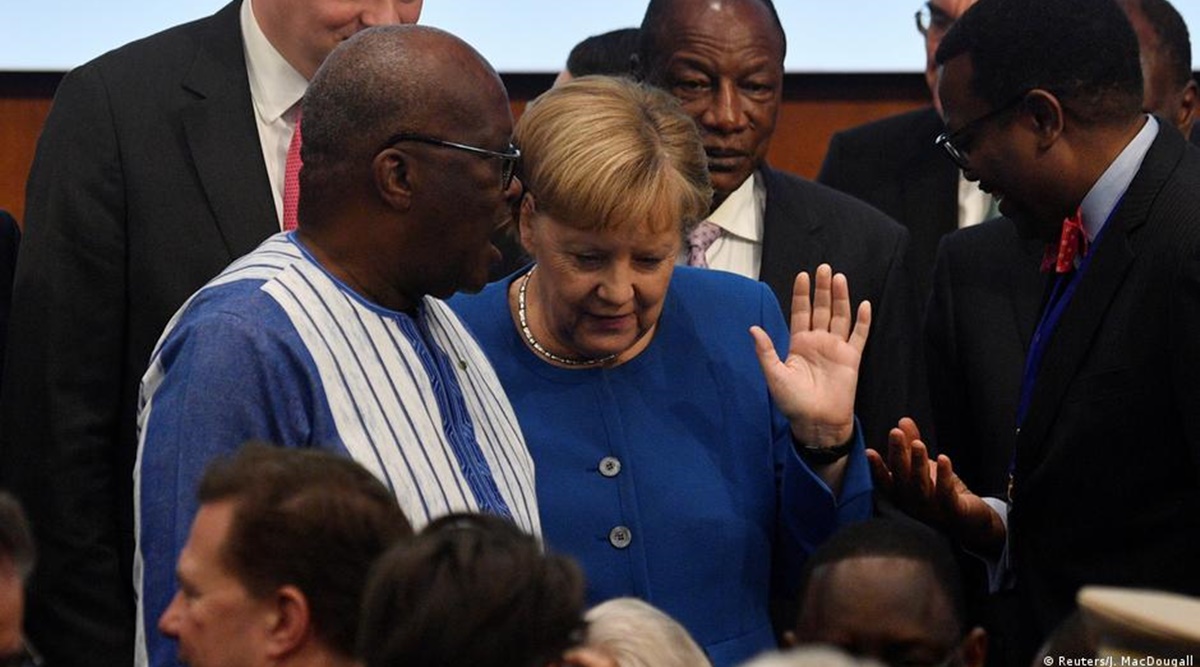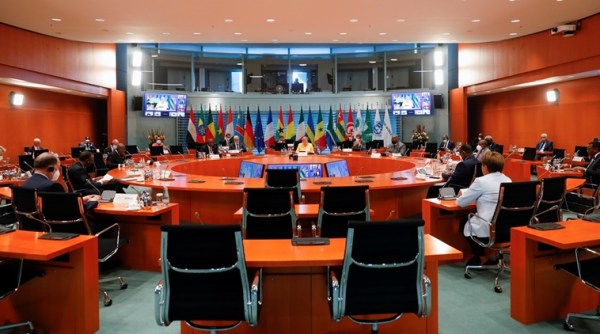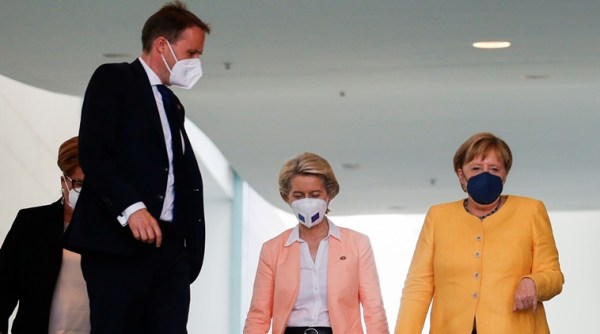
[ad_1]
Officially, the event is called the “Compact with Africa Conference”. But in reality, an era is coming to an end this Friday when German Chancellor Angela Merkel meets a dozen African heads of state, some of whom will be listening virtually. The conference would mark an era in which Africa has played a greater role in German politics than before.
The most visible sign: the Compact-with-Africa initiative, the prestigious project of the German presidency of the G20. As a result, private investment on a whole new scale would flow into Africa. But above all, the German government wanted to encourage German companies to invest in Africa with a whole package of support measures.
Conclusion: less enthusiasm
The Berlin summit is therefore an event to take stock. On the German side, the results seem positive. German Chancellor Merkel underlined in her opening speech: “The pact with Africa is working. In most of the Compact countries, the business environment has improved thanks to the reforms, allowing them to record above-average investments compared to the whole of Africa until 2019 inclusive, also the share of German companies.
“Yes, more German companies are active in Africa, especially more small and medium-sized companies. We experienced significant growth in 2018 and 2019, before the Corona pandemic, ”Christoph Kannengiesser, CEO of the Africa Association of German Business, told DW.
Merkel said all participants will need to keep thinking about how to reduce remaining trade and investment barriers under the Pact. “Africa has so much market potential, but it also needs to be better exploited,” she said.
“There are good reasons to look to the future with confidence. Particular attention is paid to investments in renewable energies. Their expansion is vitally important to ensure that we can actually achieve our global climate goals, ”Merkel added.
 German Chancellor Angela Merkel attends G20 Pact with Africa (CwA) meeting in Berlin, Germany on August 27 | Reuters
German Chancellor Angela Merkel attends G20 Pact with Africa (CwA) meeting in Berlin, Germany on August 27 | Reuters
African leaders are also likely to have kind words when bidding Merkel farewell. One of them is Nicolas Kazadi, Minister of Finance of the Democratic Republic of Congo: “I would just like to point out that Germany, under the leadership of Chancellor Angela Merkel, is leading the way in energy transition.
In addition, he said, the key materials of the potential sources of green energy that will allow the world to make this energy transition and achieve the goals we have set for the planet in 2021 lie in Africa. “It is Africa’s desire to build a strategic partnership with Germany in this area, but not just as a supplier of raw materials, but truly as a full partner of Germany.
But not much remains of the enthusiasm for the “Merkel plan” – as Ivorian President Alassane Ouattara dubbed it in early 2017. “When I look at African countries today versus when the chancellor made these statements, I am not sure that German economic activity has increased considerably, ”Olumide Abimbola, director of the African think tank APRI (Africa Policy Research Institute) in Berlin, told DW.
Investments increase moderately
In a sense, both sides are right. From 2017 to 2019, German investments in Africa increased by around 1.57 billion euros ($ 1.84 billion). A rather moderate increase. The continent still receives only 1% of all German investments in the world. No figures are yet available for 2020, but they are likely to stagnate or, at best, increase slightly due to the pandemic. In addition, most German companies still do not find Africa attractive. In 2019, only 884 companies invested in it, 42 more than in 2017.
And this, despite the many support programs launched by the Merkel government. These include a multi-billion dollar investment fund, more business advisory services, and better protections and guarantees. The Africa Association of German Business believes that the instruments need to be further broadened: “This includes reducing risk and facilitating financing. But it is also a question of once again significantly reinforcing the presence of German politics on the African continent ”, specifies Kannengiesser.
On the African side, other opinions are not always flattering. Behind closed doors, African diplomats complain that German companies are too timid, even as their competitors are doing good business in Africa. But the truth is also that there are not enough customers in many countries for high quality but expensive German products. For example, about two-thirds of all German sales and much of the investment is made in South Africa, which is relatively wealthy.
What happens after the German elections?
It’s also unclear who will benefit in the end. “We must ensure that investments in Africa also keep their promise: that jobs are created, that the economy grows, that there is sustainable development,” says expert Abimbola. This is also what the German government promises.
 German Chancellor Angela Merkel and Commission President Ursula von der Leyen walk during the G20 Pact with Africa (CwA) meeting in Berlin, Germany on August 27, 2021 | Reuters
German Chancellor Angela Merkel and Commission President Ursula von der Leyen walk during the G20 Pact with Africa (CwA) meeting in Berlin, Germany on August 27, 2021 | Reuters
On the other hand, critics say that the many support programs do not commit companies to clear social standards. The selection of Compact for Africa countries is also controversial. While only so-called reform-oriented countries are expected to participate, authoritarian states such as Rwanda and Egypt are also included. Ethiopia also remains a member, despite the bloody conflict in the Tigray region.
At Friday’s meeting, African leaders are likely to pose an important question to the outgoing chancellor: what will happen after the German election? Besides Angela Merkel, Development Minister Gerd Müller will also be absent from the new government. This means that the two most important architects of Germany’s new African policy are stepping off the boat.
Merkel has been very involved in Africa, according to company representative Kannengiesser: “We hope that future ministers of economy and foreign affairs will again increasingly visit Africa with business delegations, but will also support concrete projects with appropriate political support.
However, it is not yet clear who will assume government positions in Berlin in the fall – and how much attention a new German government will give Africa in times of climate change and challenges from the corona pandemic.
This article was translated from German by Martina Schwikowski.
Source link